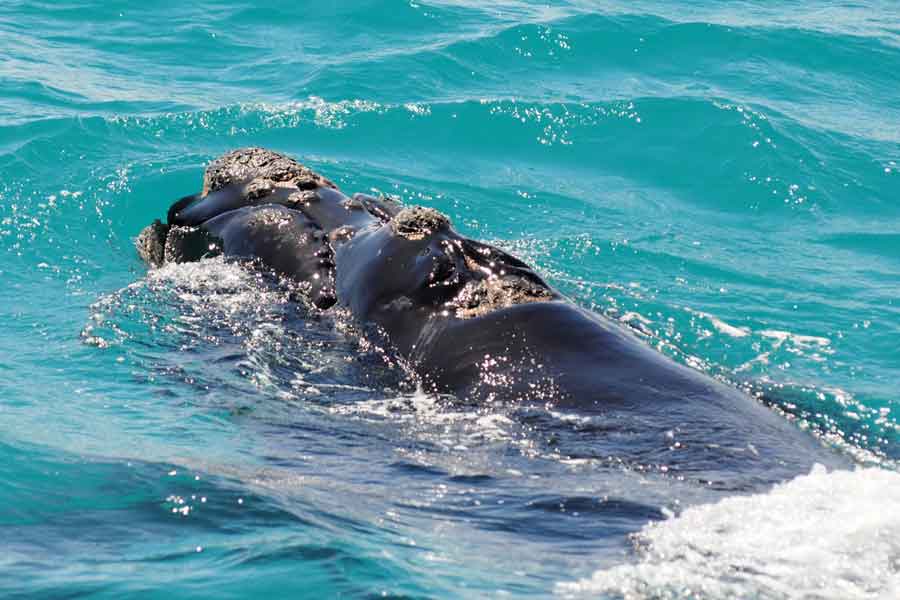
Every spring, the Southern Right Whale arrives at the Valdes Peninsula with a clear and precise objective: to mate and give birth to its calves. These enormous marine mammals, measuring up to 16 meters in length and weighing an average of 40 tons, are among the largest living beings on our planet.
The copulation of such large animals is not an easy task. Therefore, the females, reaching sexual maturity at the age of ten, are copulated by a group of males who assist each other by pushing the female into the proper position. For this purpose, males are equipped with a retractable reproductive organ of nearly two meters, which is exposed only during copulation. The male’s testicles, weighing nearly 900 kilograms, provide an incredible amount of seminal fluid. This copulation, which may seem like a competition among the males to fertilize the female, is not really so, as almost all of them will succeed in doing so. The true competition among the males occurs inside the female, where only one out of billions of spermatozoa introduced will successfully fertilize the egg and create a new calf.
After spring, the female migrates to Antarctica in search of food and returns to the Valdes Peninsula the following spring to give birth to her calf, which will measure about five meters in length and weigh three tons at birth. For one year, the calf will suckle from its mother’s thick and protein-rich milk, allowing it to grow up to 50 kilograms per day. By the end of spring, with a sufficient layer of blubber formed, the calf will travel to Antarctica to allow its mother to feed, returning to the Argentinean south the following year for weaning and separation from its mother, who will copulate again to have a calf the next year.
At this very moment, a whale calf is being born in the Valdes Peninsula, carrying with it the hope for the recovery of its species, which shares the same space and time as ours.
«You cannot defend what you do not love, and you cannot love what you do not know.»

